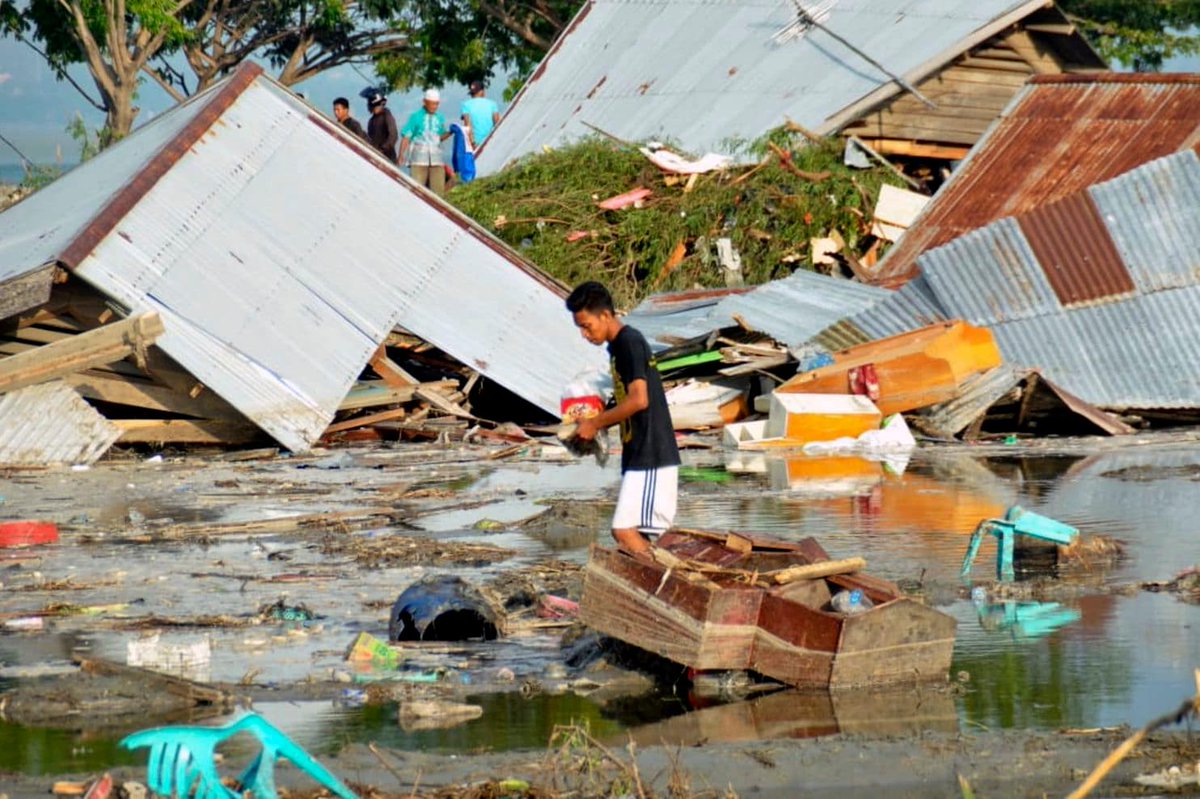Christians gather outside ruined churches of Sulawesi to mourn, give thanks for survival

- Country:
- Indonesia
Dozens of Christians gathered outside ruined churches on the island of Sulawesi on Sunday for open-air services to give thanks for their survival and to mourn members of their congregation killed in a devastating earthquake.
Indonesia has the world's biggest Muslim population but there are Christian communities throughout the archipelago, including in the small city of Palu hit hard by a 7.5 magnitude earthquake and tsunami on Sept. 28.
The official death toll stands at 1,649 but will rise as bodies are recovered from the ruins of buildings and from morasses of debris and mud in the city's southern neighbourhoods hit by liquefaction, a phenomenon that turns the ground into a roiling quagmire.
"We are so relieved to be alive but sad because so many of our congregation died," said Dewi Febriani, a 26-year-old economics student, after a service in a tent set up outside her damaged church.
The Toraja Church in Jono Oge village, just south of Palu, had cracks through is walls and is considered unsafe. Its cross stood high.
Pews were brought out and set up under the tent.
Febriani said her house was destroyed in the disaster.
"One of the only things I have dared to save was my Bible," she said, holding the well-thumbed copy in her lap.
Jono Oge was particularly hard hit by liquefaction.
Dozens of teenagers at a nearby church and Bible camp were killed. Many of their bodies lie buried in the mud.
'POWER'
A woman attending a service outside a nearby church that was also badly damaged said the disaster was a "reprimand" from God.
"We are witness to God's power. We're still scared but we pray because we believe God will help us," said the woman, Eliwati, who wore a bright blue dress with an ethnic Toraja pattern, a splash of colour in a bleak landscape.
The congregation sang hymns just behind her as she spoke.
Most of the dead have been found in Palu, the region's main urban centre. Figures for more remote areas, some just re-connected to the outside world by road, are trickling in.
Sulawesi is one of Indonesia's five main islands and, like the others, is exposed to frequent earthquakes and tsunamis.
In 2004, a quake off Sumatra island triggered a tsunami across the Indian Ocean that killed 226,000 people in 13 countries, including more than 120,000 in Indonesia.
A big aid operation is gearing up to help the hard-hit communities, including some 70,000 displaced people.
Indonesia has traditionally been reluctant to be seen as relying on outside help to cope with disasters, and the government shunned foreign aid this year when earthquakes struck the island of Lombok.
But it has accepted help from abroad for Sulawesi.
Despite that, some foreign groups say they have faced difficulties getting entry permits to bring in staff and equipment.
Deputy Foreign Minister Abdurrahman Mohammad Fachir told a briefing in Jakarta on Saturday ministries were coordinating to facilitate the arrival of aid.
Indonesia needed aircraft, generators, tents, water treatment and field medical facilities, he said.
The national disaster mitigation agency said foreign aid groups should not work independently but in coordination with the Indonesian Red Cross.
(With inputs from agencies.)










